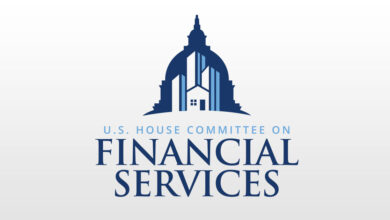Global NewsSecurity TokensTokenization
Consensys launches Baseline Protocol to support tokenization

Today, EY and ConsenSys announced the formation of the Baseline Protocol in collaboration with Microsoft. The Baseline Protocol is an open source initiative that combines advances in cryptography, messaging, and blockchain to deliver secure and private business processes at low cost via the public Ethereum Mainnet. The protocol will enable confidential and complex collaboration between enterprises without leaving any sensitive data on-chain. The work will be governed by the Ethereum-Oasis Project, which is managed by OASIS and funded by the Ethereum Foundation and the Enterprise Ethereum Alliance.
Businesses spend hundreds of millions of dollars on ERP, CRM and other internal systems of record. Failure to properly synchronize these systems between organizations causes considerable disruption and waste: disputes, lost inventory, inflated capital costs, regulatory actions, and other value leakage. To avoid these problems, systems require a common frame of reference. But only the largest high-volume partnerships can afford the capital expense involved in setting up such integrations. The baseline approach employs the public Ethereum Mainnet as that common frame of reference, because it’s always on, companies can’t be locked out or restricted from using it, and they only need to pay for what they use.
However, past approaches to blockchain technology have had difficulty meeting the highest standards of privacy, security and performance required by corporate IT departments. Overcoming these issues is the goal of the Baseline Protocol.
In mid 2019, EY, ConsenSys and Microsoft started a supply chain project codenamed Radish34 that uses public Ethereum to enable real time volume discount calculation across a series of purchase orders. These efforts led to the creation of the Baseline Protocol and a very different way of thinking about how to use blockchain technology.
Paul Brody, EY Global Blockchain leader said, “Over the last two years, we have been advancing the state of the art for private, secure transactions on public blockchains. This takes the groundwork we have built and starts filling in gaps such as enterprise directories and private business logic, so companies will be able to run end-to-end processes like procurement with strong security.”
John Wolpert, ConsenSys’ Group Executive for Enterprise Mainnet added, “A lot of people think of blockchains as the place to record transactions. But what if we thought of the Mainnet as middleware? This approach takes advantage of what the Mainnet is good at while avoiding what it’s not good at.”
The Baseline Protocol has already brought together more than a dozen companies and organizations that will form its technical steering committee (TSC), including ConsenSys, EY, Microsoft, AMD, ChainLink, Core Convergence, Duke University, Envision Blockchain, MakerDAO, Neocova, Splunk, Unibright, Provide, and W3BCLOUD.
The protocol will support tokenization and decentralized financial services on the Mainnet in a way that doesn’t reveal corporate assets or activities to unauthorized parties, and it leaves enterprise data safely in traditional systems. It’s hoped that the providers of ERP, CRM and other enterprise systems will optimize their products for the protocol over time, but baselining works without requiring any modification to legacy systems.
The Baseline Protocol presents significant commercial opportunities for solutions firms, enterprise systems vendors, and Cloud providers. Yorke Rhodes, Principal Program Manager, Blockchain at Microsoft said, “Microsoft Azure has been building production-ready offerings that give our enterprise customers direct access to blockchain technologies up and down the stack. For the Ethereum Mainnet we are imbuing enterprise cloud scale principles in the solution without compromising information security. Baseline is helping to create an opportunity for compelling solutions that can drive new value for enterprises while extending the value of the products our customers and partners have been using for years.”
Code is available to an early group of testers today and will be made available to the general public this month. If you are interested in getting access to the work, contributing, and being involved in the Baseline community, sign up here: https://forms.gle/kx1RdEJ4gamcucxH7





